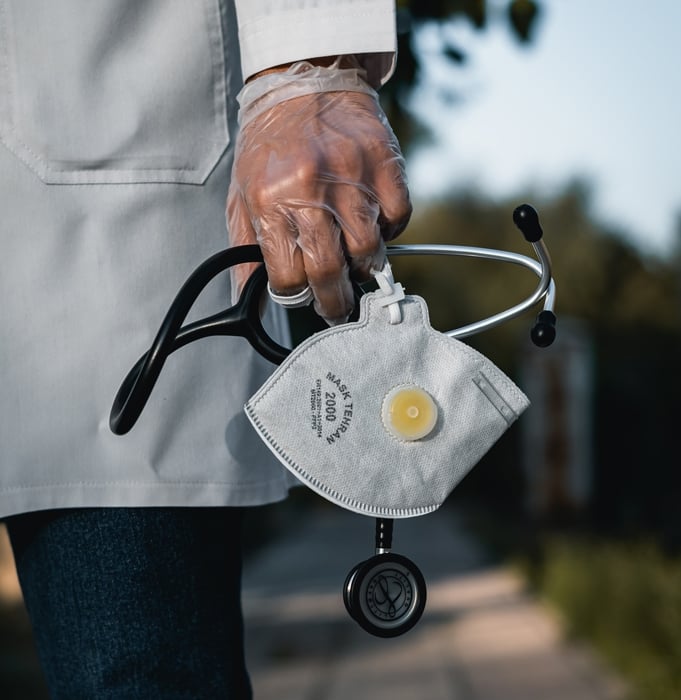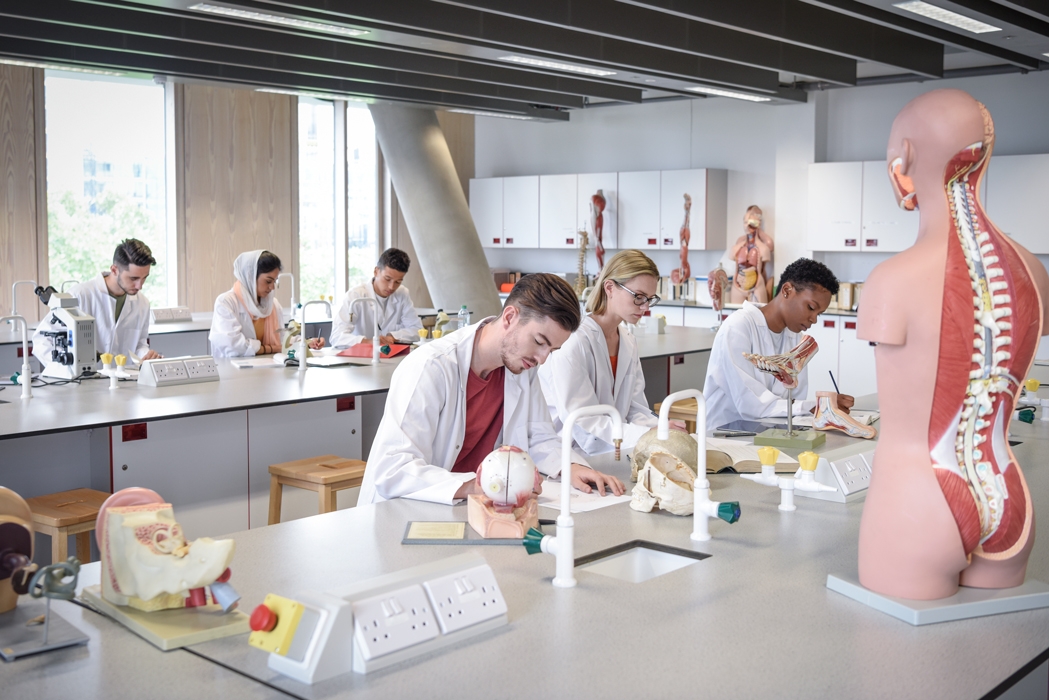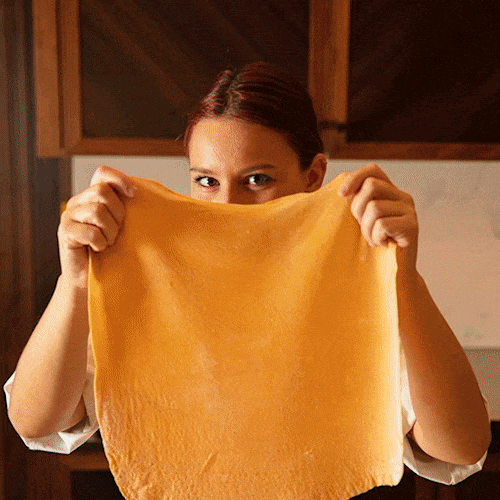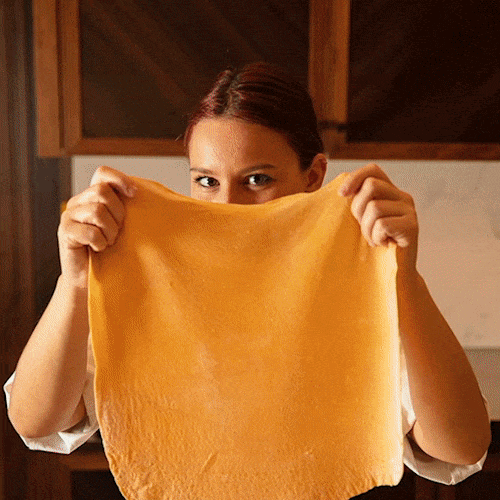Ever considered a career in medicine? Has the determination and strength of medical professionals throughout the pandemic inspired you to make an application to study further? You wouldn't be the only one, as applications to medical courses in the UK have risen by almost a third this year. Health leaders have put the rise in applications down in part to people being inspired by the work of doctors and nurses during the coronavirus pandemic. UCAS has shown that applicants for medicine courses specifically have increased by nearly 5,000 to 28,690, and 60,130 people had applied to a nursing course for autumn 2021 – an increase of 32% since 2020.
There is a lot to consider for students who are thinking about applying to study medicine at university. This article speaks to prospective students considering a career in medicine about what the application process involves and how to put your best foot forward. Please continue reading for helpful information on topics such as deciding if medicine is the right subject for you, required A-Level choices, UCAT and BMAT preparation and medical school interview techniques.
Applying to study medicine is highly competitive; in the UK, there are 7,500 places available to study medicine at university, and in 2020, there were 23,710 applications, a 6% increase from the previous year. Gaining a spot on one of the courses is no easy task, with entry requirements extremely high amidst a rigorous application process. Out of approximately 130 universities in the UK, there are only 37 medical schools. Each is a member of the Medical Schools Council and considered to be amongst the best for studying medicine worldwide. For international students, the application process is also made harder by the cap on numbers that the courses can intake, meaning more applicants are going for a limited number of places.
With all of this in mind, see below for Quintessentially Education's advice on what students will need to consider before making an application on UCAS.
Deciding on a career in medicine
- This is not a decision to be taken lightly, and medicine is a lifelong career path requiring commitment and passion.
- Whereas the average undergraduate degree will take three years, a degree in medicine will take five. Studying for the degree is hand on and is heavily focused on voluntary work and working in hospitals.
- With post-degree training, it can take students up to 16 years to be a doctor.
- However, if deciding a career in medicine at 17 years old is too early, there is also have the option of Med School at Graduate entry. Graduate Entry Medicine is a pathway for existing graduates and degree holders who have studied science-related degrees. Postgraduate Medicine programmes are accelerated, so they usually take four years to complete instead of the five or six years on standard entry courses. Entry is typically less competitive and allows students to study medicine even if they did not decide to study it initially post-high school.
- Students must also consider the psychological impacts of a career in medicine. Being a doctor involves complex and difficult decisions, as well as working all hours. It is not your typical 9-5 job and is instead an all-consuming career. That being said, the work is gratifying and fulfilling.
GCSE and A-Levels required for medicine
- Each medical school has slightly different requirements, but some subjects are necessary to have.
- Most students will have achieved at least 5 A*-A grade GCSEs (or equivalent) in subjects including Maths and English. Students will also be required to have obtained at least a grade B in a science subject. Competitive medicine applications will often have 4 A-levels (or equivalent).
- Having 3 A* - A-Levels at A2 (or equivalent), including Chemistry and Biology, will put you in a strong position. Biology, Chemistry, Maths, Further Maths and Physics are all subjects that admissions officers will look for.
- Most universities will be looking for students who have achieved between 36-38 points for those studying the International Baccalaureate. The University of Oxford, University of Cambridge and UCL require 39 points or above.
- International students will also have to achieve relevant country equivalents.
Choosing a Med-School
- Students applying to medicine will put four choices of medical schools on their UCAS application. However, their fifth choice is reserved for another subject. Some universities will allow students to write a different personal statement for their fifth choice, but many won't, so it is usually something science-related.
- There are currently 37 medical schools in the UK to choose from, with ranging entry requirements.
- Students should consider their predicted grades when applying to see which medical school this best aligns with.
- It is also essential to consider the type of medical schools - 1) traditional 2) integrated 2) problem-based learning.
Traditional: With traditional medical schools, such as Oxford, Cambridge and UCL, students will spend the first two years of their studies in a lecture setting, learning about theory across all types of medicine. Some of the broad areas that will be covered in detail are physiology, biochemistry and anatomy. The next few years will be spent learning under a consultant. This will involve completing ward rounds, shadowing or GP placements, and the course will focus on hands-on situations.
Integrated: Integrated courses are similar to traditional courses with one key difference: you'll start some clinical work experience from day one. This is quickly becoming the most popular route as well as the recommended approach, according to The General Medical Council. An integrated course has long-term benefits as students gradually grow comfortable with clinical settings rather than being expected to apply two years of knowledge readily in high-pressure environments.
Problem-based learning: These focus on small group work, peer-to-peer learning methods and a high emphasis on education through problem-solving - and are available from a small number of universities. Students will work in groups of around eight alongside an experienced tutor and will be asked to investigate hypothetical situations and present information to the group whilst discussing the elements of the case and their interlinking nature.
It is also crucial for students to consider the location of the university too. What are your lifestyle preferences? Would you prefer to be in a city or a campus university? Is it important to be close to transport links, and would you rather be in the north or the south of the country? All of these lifestyle preferences are factors to consider when deciding where to apply.






Thinking of applying to a UK university for medicine?
Medical Work Experience
- Gaining work experience is crucial to knowing if medicine is the right career path for you before making an application.
- Work experience is also vital to build up your CV and is required by most universities and their admissions teams.
- It is tough to get work experience as a prospective medical student, particularly in hospitals and GPs. This is due to several reasons, including hospitals already being oversubscribed and patient confidentiality.
- Medical admissions teams are aware of these challenges, and the key is the variety of work experience you can get; it does not have to be all in hospitals. For example, volunteering in care homes and working with medical charities and youth groups is also a valuable experience that admissions teams will consider.
- COVID-19 has added pressure, as the restrictions have made it nearly impossible for students to get in-person work experience. However, again, universities will understand the difficulties of this year and consider this.
- Online work experience is also valuable, such as attending lectures put on by the university medical schools, and attendance will demonstrate your passion for the course.
- Some universities also put on courses in the summer (both in-person and online) specially designed to expose students to what a study such as medicine entails. Attending one of these summer schools will also be looked upon favourably by admissions officers!
Admissions Tests: UCAT and BMAT
- The UCAT (University Clinical Aptitude Test) and BMAT (BioMedical Admissions Test) are two standardised tests common requirements for the United Kingdom institutions' entry criteria onto a medical qualification. Universities will require one or the other, and university admissions officers will use the student's scores to make student offers.
- The tests are designed to test various areas of your thinking skills, medical knowledge and clinical aptitude.
- The UCAT is a digital test that focuses on candidates answering questions of varying difficulty in short spaces of time over topics ranging from Verbal Reasoning to Quantitative Reasoning, to Abstract Reasoning, Situational Judgement, etc.
- The BMAT, however, is a written examination with an emphasis on mathematics, science and logical thinking.
- Students must enroll themselves in the correct tests depending on which universities they have applied to and must practice and revise before taking the exams.
- Students are also only allowed to take the tests once per cycle (unlike SAT/ACT's) and therefore must be as prepared as possible - there are no second chances!
Personal Statement
- A personal statement must illustrate the student's academic abilities and achievements, highlight all of their previous relevant work experience, and show their genuine passion for the subject.
- The personal statement involves a 4,000-character limit, which is roughly 500 words.
- UCAS, the admissions service for universities in the UK, describes a personal statement as "your opportunity to sell yourself to your prospective school, college or training provider." Students are given a 4,000 character limit (which roughly equates to 500 words) to show off their appeal to the institutions of their choosing.
- The key things that medical schools will be looking for are evidence of motivation, explorative work experience and suitability for fitting into their learning environment. The best approach to take in this respect is to break your statement down into chunks.
Medical School interviews
- If you are studying for a medical school interview, then well done – you have passed the first stage of the admissions tests. Like all interviews, medicine interviews can be nerve-wracking, and it is vital to go into them as prepared as you can.
- There are three types of medical school interviews: traditional, Oxbridge and MMI.
Traditional: These resemble job interviews, and you'll likely first be asked questions about your background and goals - why you want to study medicine, where your passions began and what your ambitions are. Expect questions like "give me an example of when you worked with a team to achieve a critical goal" or "explain a time where you coped under considerable pressure".
Oxbridge: Oxbridge medical courses are more heavily focused on research. This means that their interviews are far more focused on assessing your cognitive abilities and thinking skills. An example question may involve: what makes a good doctor?
MMI: The MMI approach is a modern method of interviewing in which you face several interviewers in relatively quick succession. Each one will either give you a task or ask you questions. The purpose of this is to assess your interdisciplinary approach to tackling problems. You'll conduct a series of 'mini' interviews with members of staff that will present you with a scenario that requires a demonstration of problem-solving or role-play to resolve.
Whichever interview type of interview you end up taking, preparation is going to be key – so don’t be afraid to research, practice and seek assistance with general readiness. And this is true for all elements of the process. The application system is ultimately designed to assess suitability and ensure that any individual who pursues a career in medicine is genuinely going to be appropriate doctor material. But in order to showcase your best self for this sort of opportunity, it’s only natural that you need to approach the process fully prepared.
For further questions about the medical admissions process or a more personalised service about your or your child's specific requirements, please contact Quintessentially Education.





